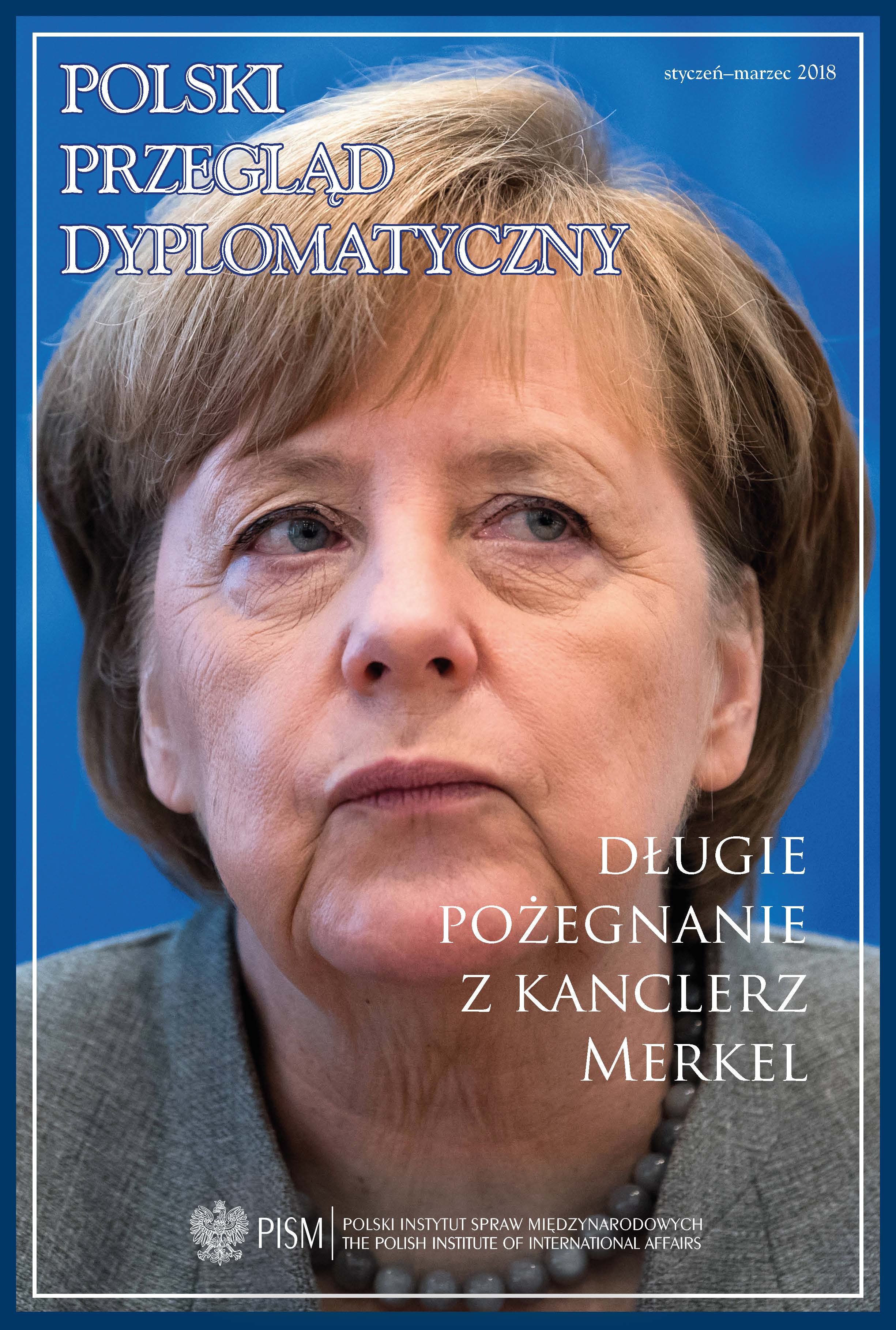
We kindly inform you that, as long as the subject affiliation of our 300.000+ articles is in progress, you might get unsufficient or no results on your third level or second level search. In this case, please broaden your search criteria.

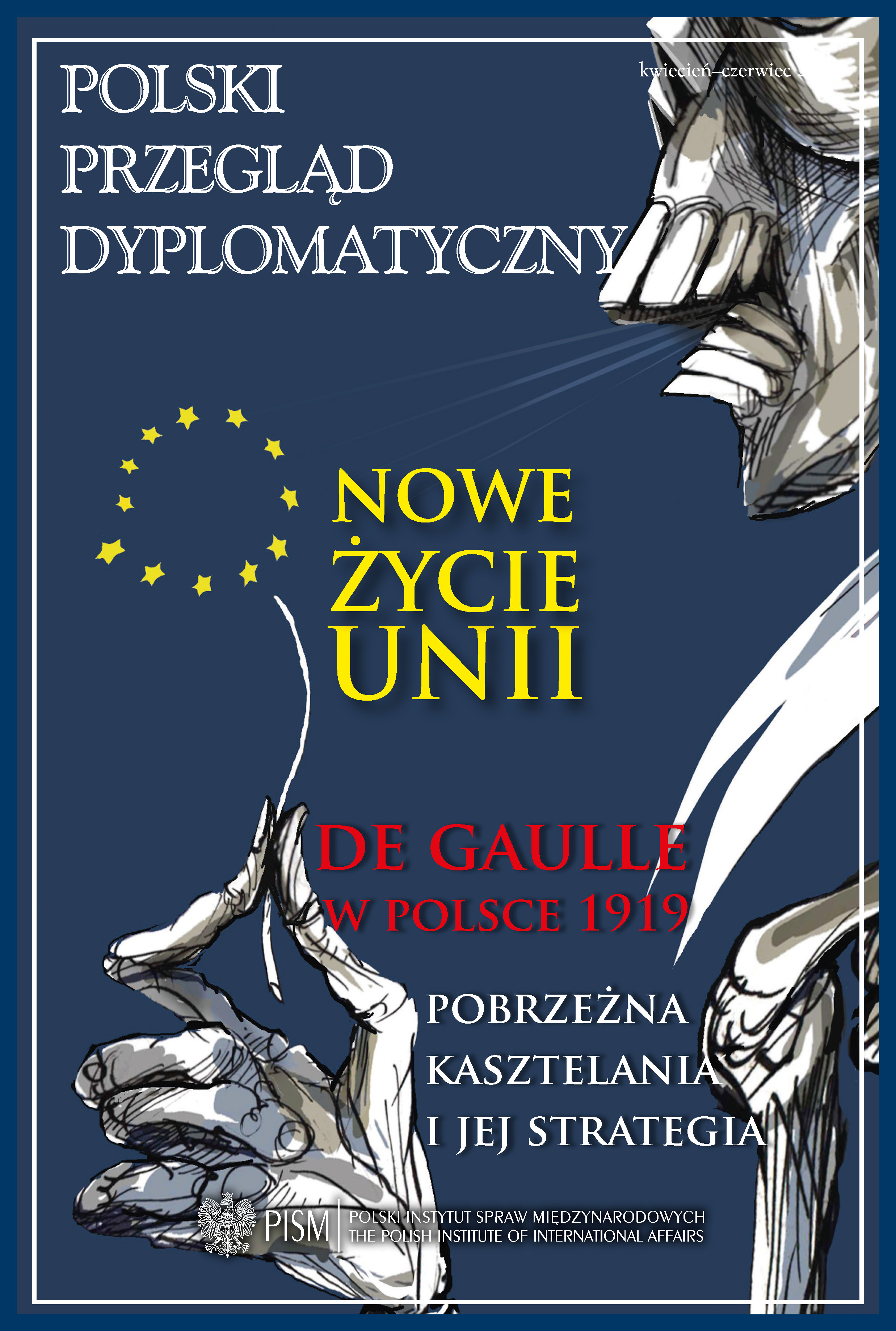



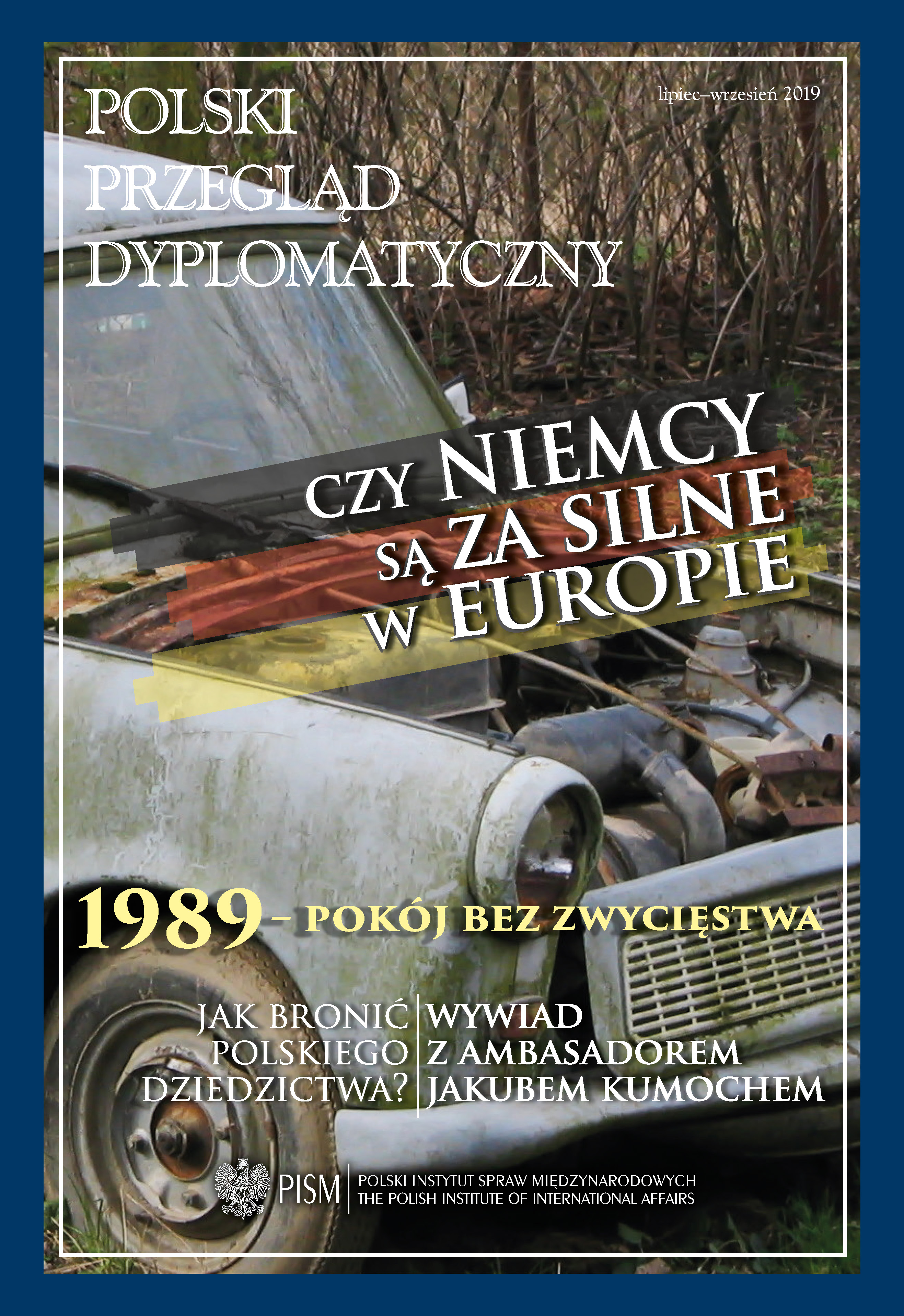
Reform and chage need mutual vision EU. So far there is none
More...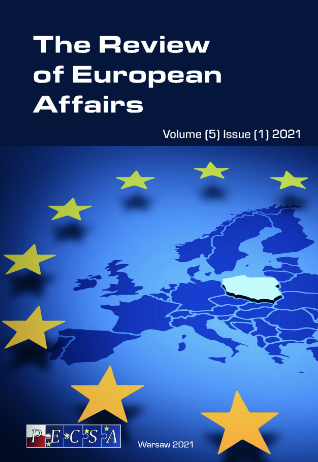
Nowy, niejasny do końca wirus był szokiem dla świata dwudziestego pierwszego wieku. Jednak poza względami zdrowotnym i społecznym, spowodował także wstrząs w gospodarce. Łatwość, z jaką wydaje się przenosić, w połączeniu z rosnącą liczbą nowych przypadków oraz stosowaniem środków dystansowania społecznego, stworzyły atmosferę strachu i niepokoju. Izolacja, niezbędna dla powstrzymania rozprzestrzeniania się wirusa, wymaga zastosowania środków nadzwyczajnych ograniczających wolności obywatelskie, czego skutkiem jest wyhamowanie gospodarek krajów dotkniętych pandemią. Poszczególne kraje stosowały różne elementy polityki gospodarczej, by ograniczyć skalę recesji. Artykuł ma na celu zobrazowanie wpływu pandemii na gospodarki Unii Europejskiej, z uwzględnieniem czynników popytowych i podażowych.
More...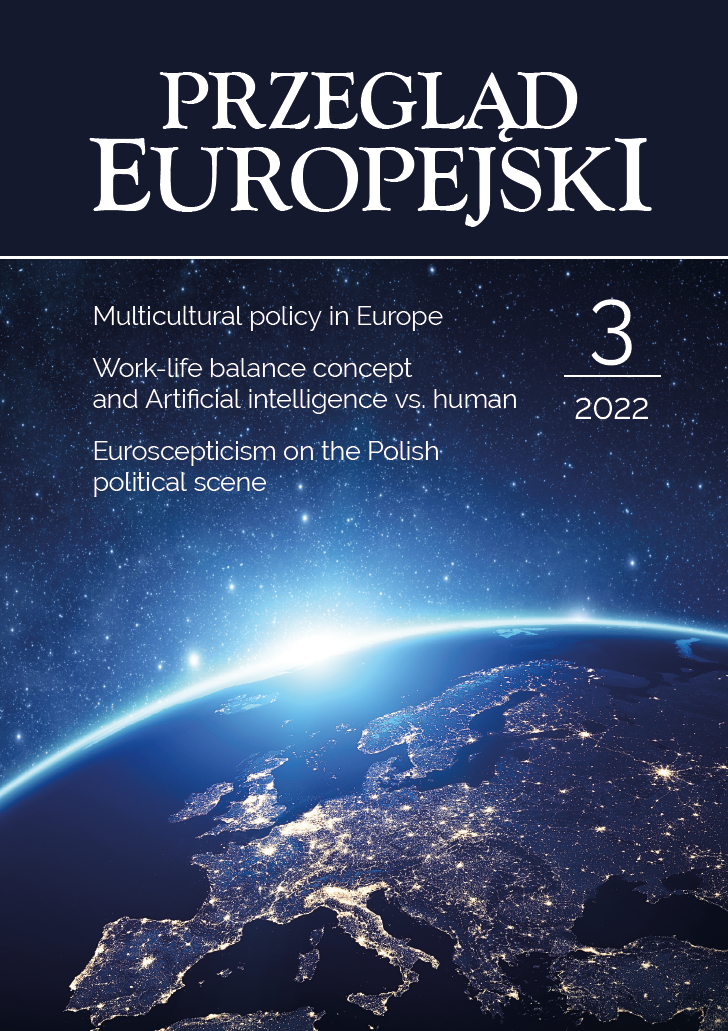
The aim of this article is to analyse the growing phenomenon of Euroscepticism on the political scene in Poland, taking into account the power of the ruling coalition headed by the party "Law and Justice". For this purpose, after a brief discussion on the theoretical framework of Euroscepticism, in order to find the reasons for the rise of this phenomenon in Poland in recent years, the current context of the government’s relationship with the European Union (EU) is analysed. Consequently, by analysing the political programmes of the party Law and Justice and statements of political actors associated with the main ruling party in Poland, the author verifies the upward trend in unfavourable attitudes towards the EU by current government, as well as consistently appearing considerations of leaving the EU (“Polexit”).
More...
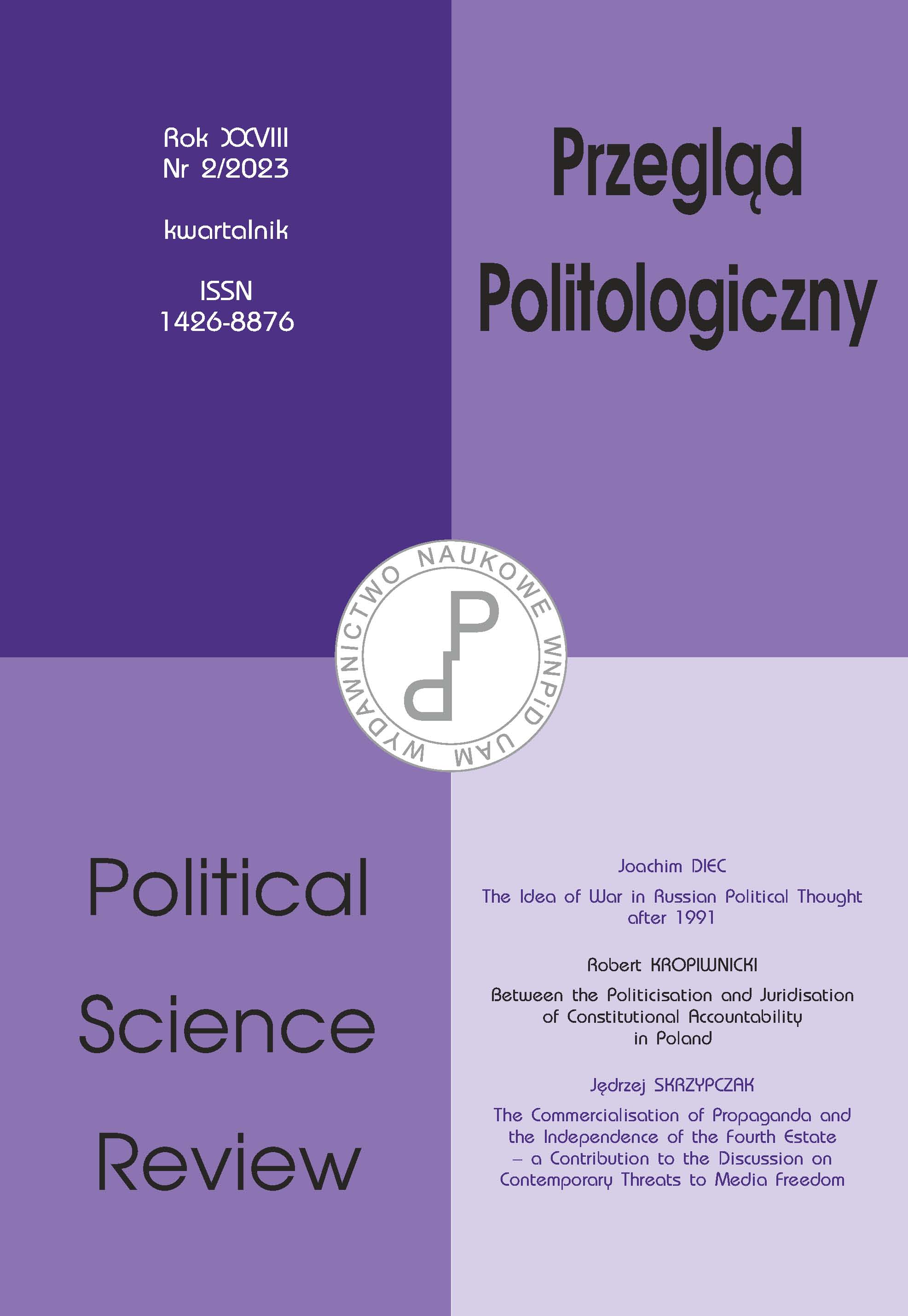
The purpose of this article is to show Poland’s path to European Union membership from the perspective of the 20th anniversary of the signing of the Accession Treaty. Joining the Community was proceeded by many years of preparation and efforts. Poland had to meet many necessary requirements to finally join the ranks of the member states. The negotiations, which began on April 3, 1998, were concluded on April 16, 2003, with the signing of the Accession Treaty in Athens. In Poland, the decision was also decided by the public expressing its opinion in a referendum held on June 7–8, 2003. On July 23, 2003 the Accession Treaty was ratified, and on May 1, 2004. Poland became a member of the European Union. Poland’s entry into the European Union made it possible to take a civilizational step. Poland benefited from its presence in the EU in many dimensions, primarily political, economic and social. The benefits of Poland’s accession to the EU far outweigh the costs. This assessment is also confirmed by the opinions of citizens expressed in surveys. In June 2022, the number of supporters of Poland’s EU membership reached a record 92%.
More...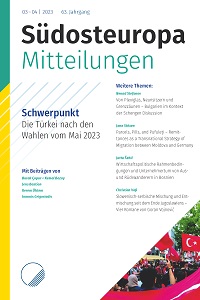
Even after almost sixteen years of membership in the EU, Bulgaria is still not part of the Schengen area. The governments of the Netherlands and Austria in particular continue to have reservations about Bulgaria’s “border regime” at its part of the EU‘s external borders. Both states voted against Bulgaria’s – and also Romania’s – admission to the „Schengen area“. But what does „Schengen“ stand for? What experiences of the people in Bulgaria with regard to mobility within the EU are being conveyed in the debate about Schengen? In order to assess this, it is necessary to look back at the last three decades since the beginning of the social and political transformation. Here with the focus on the changing constellations of mobility and borders. This is done in three small picture fragments each, in order to illustrate, to a certain extent, the multidimensionality of experiences and ideas of movement and its borders.
More...
The strategy of power games and peaceful diplomacy in the media and new media age are essential in defining the rules and values of the global political system. Soft power becomes a key tool for strengthening the global position and promoting the positive image of states at the international level. This study explores the concept of soft power and highlights the importance of the Erasmus+ Program in EU diplomacy. Erasmus+ facilitates international cooperation in education, culture and European values, thereby influencing global policy. Through this program, the EU can promote dialogue, pluralism and democracy, having a significant impact on the enlargement process of the European Union and on international relations in the regions of the Eastern Partnership and the Western Balkans. In the course of this article, we will analyze the objectives and the implementation methods of the Erasmus+ Program in the regions of the Eastern Partnership and the Western Balkans, in order to show that this is an effective soft power tool of the European Union.
More...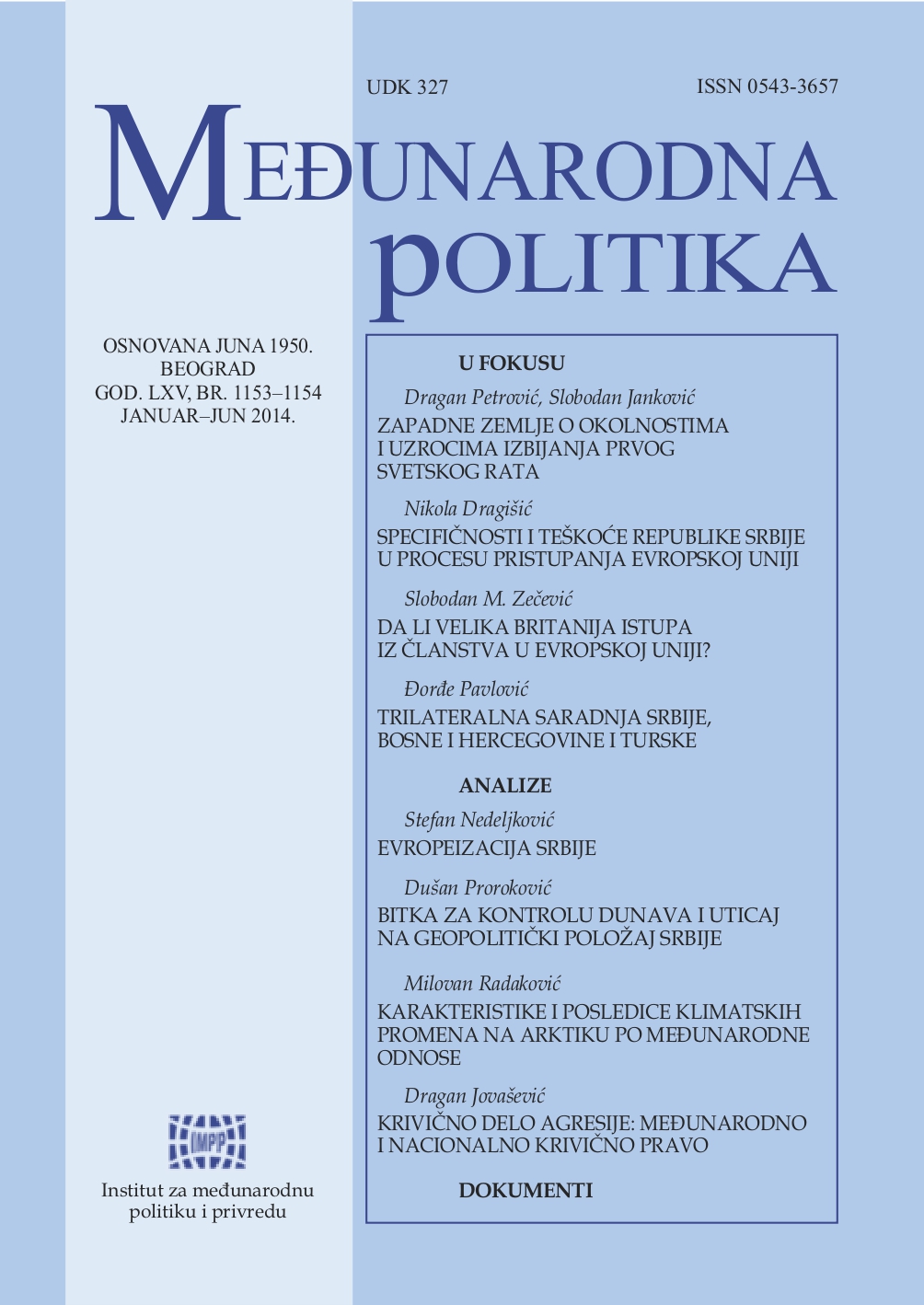
The article analyses the path of the Republic of Serbia to the European Union, this including the concrete results it has achieved on this path as sell as the difficulties which follows this process. They primarily concern the normalisation of relations with Kosovo and Metohia as well as the political and economic reforms which have not been completely carried out that is actually, the fulfilment of the political and economic criteria – the so-called Copenhagen criteria. Further constructive dialogue between Belgrade and Prishtina is a necessary condition for Serbia to start its accession negotiations with the EU and its possible integration in the Union. In spite of this, the EU is of the opinion that Serbia has achieved significant results and that it is in a good way to attain the level which is necessary for a country to achieve for the accession to the EU. The paper consists of the following six parts: the first, introductory part generally considers the conditions for the accession to the EU, the second discusses the beginning of Serbia’s European integration, the third part is focused on the Stabilisation and Association Agreement that is practically an integral part of the process of accession, the fourth speaks of the hitherto progress Serbia has made on its path toward the EU, this including the opinion of the European Commission, the fifth part regards the Kosovo and Metohija issue, and in the final part the author makes conclusions.
More...
In his TV address to the public on 23 January 2013, British Prime Minister David Cameron said that if his Conservative Party won the 2015 elections it would schedule a referendum whether Great Britain should remain or leave the European Union. Cameron’s positions coincide with the prominent British politics of Euroscepticism in the last decades. However, concerning what has been said above, there is a dilemma how much the possibility of Great Britain to leave the European Union is legally, politically and economically lawful, genuine and realistic. Apart from this, there is a question to what degree Britain’s European institutional concepts are reconcilable with the increasing tendency of Germany and France towards the federalisation of the European Union institutional system. Actually, Britain accepted the European integration as participation in the common market, but rejected the supranational conception of Jean Monnet on the federal Union being a federal state and having its own Constitution. Today, Great Britain wishes to lead the member states out of the Eurozone in the fight against the Commission’s initiative on the change of the Treaty Establishing the European Community towards the transformation of the Union into a “federation of nation states”. For this reason, the differences in conceptions between Great Britain, on one hand, and France and Germany, on the other, are prominent and threaten to polarise the European Union even more to those member states at the higher and those at the lower level of integration. This is opposite to the original principle of a uniform legal order of the European Union. Although leaving the European Union by Great Britain is legally possible, it is not realistic, because it is economically and politically risky and does not pay.
More...
At the time when the question of survival of the European Union is often raised, either due to the inborn anomalies or those which have appeared in its political system and inter-institutional relations, we will draw attention to an important policy which reflects the strengthening of the European Parliament. In this article, we deal with the role the European Parliament plays in a very important EU policy, the budget policy. After a brief review of the development of this policy and powers that the European Parliament has gained in the process of adoption, implementation and control of the budget, we will analyse its current position in this policy according to the current Treaty on European Union and the Treaty on the Functioning of the European Union, known as the Treaty of Lisbon. In this article, we will argue that the European Parliament has significantly strengthened its institutional position and that, in the future, the Parliament will show all its strength and build its power through the budget policy. Also, in this article some other questions will be opened such as what is still missing for the European Parliament to complete its role in the budget policy.
More...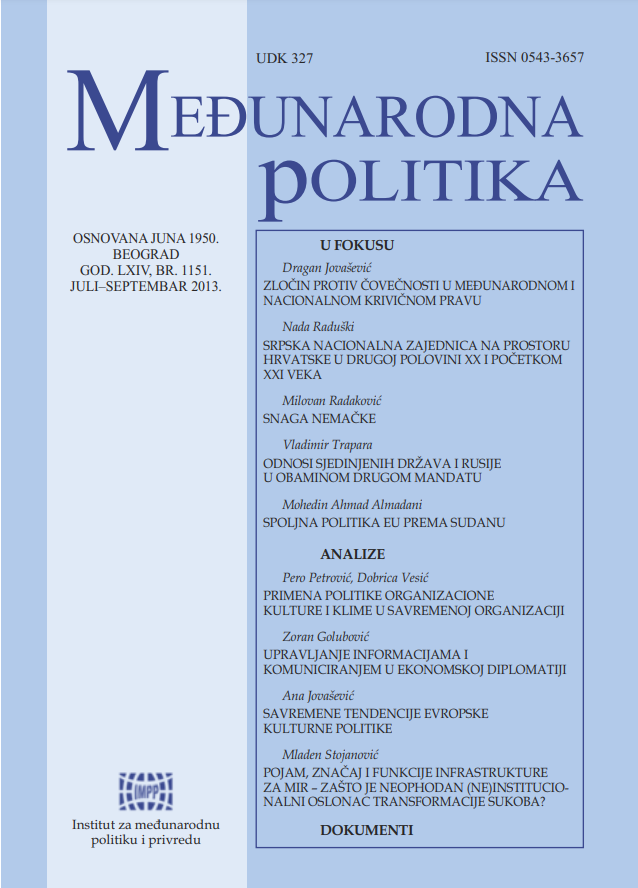
Created on the European soil in different and intertwined relationships between European countries as a metanational category, the European cultural identity appears as the integrating factor in overcoming of individual national identities. It is founded in the historical identity of Europe, which is transformed projecting the common idea of the European future. But, Europe is not a unified and homogeneous space, but the specific characteristic of the European cultural identity is regional cultural identities. In perceiving the role and importance of the region for the European cultural identity of particular significance is the region of South-Eastern Europe (including the Republic of Serbia). By all this, the region can be defined in two ways: a) subjectivistically and b) objectivistically. Among regions, most often are ethnic (cultural), industrial (urban), topographic (climate), economic (specialized), administrative and supranational political-economic region and other regions. This paper deals with the relations and influences of the region and the European cultural identity as the central concept of the modern cultural policy of Europe today.
More...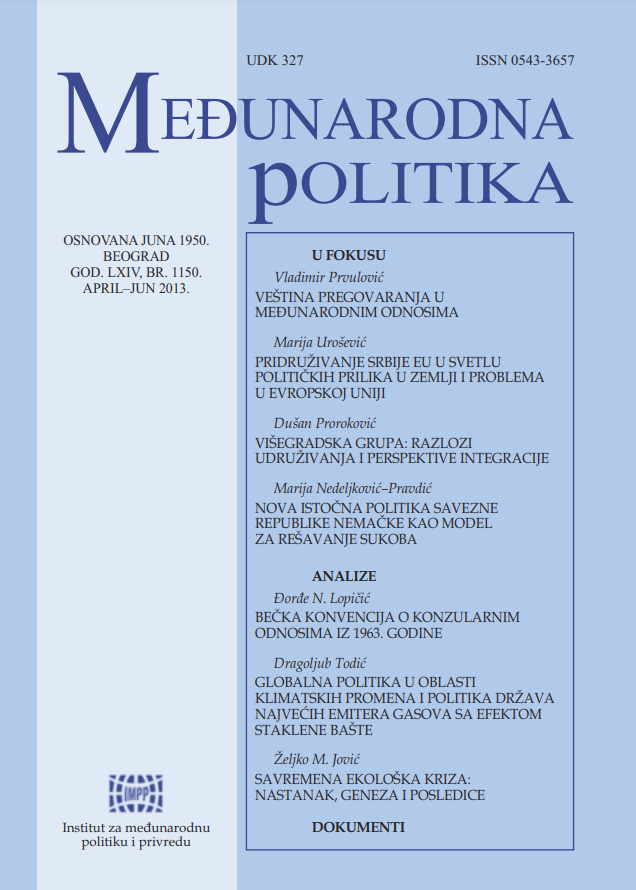
In this article, the author analyses the impact of the political situation in Serbia on the enlargement policy and its achievements on the path towards EU. Maintaining credibility of the enlargement process, which is crucial to its success, EU has consistently proclaimed the inclusiveness of its policy towards the Western Balkans with the successive European Council confirming that the future of the whole region lies within EU. The Stabilisation and Association process remains the common framework for the necessary preparations. The European Commission has assessed that Serbia has achieved the necessary degree of compliance with the membership criteria. In particular, the key priority has been taking steps towards a visible and sustainable improvement of relations with Kosovo. Further constructive dialogue between Belgrade and Priština is necessary precondition for starting the negotiations with EU. Nevertheless, the deep economic crisis in the EU gives no opportunity for the dynamic and faster European integration of Serbia.
More...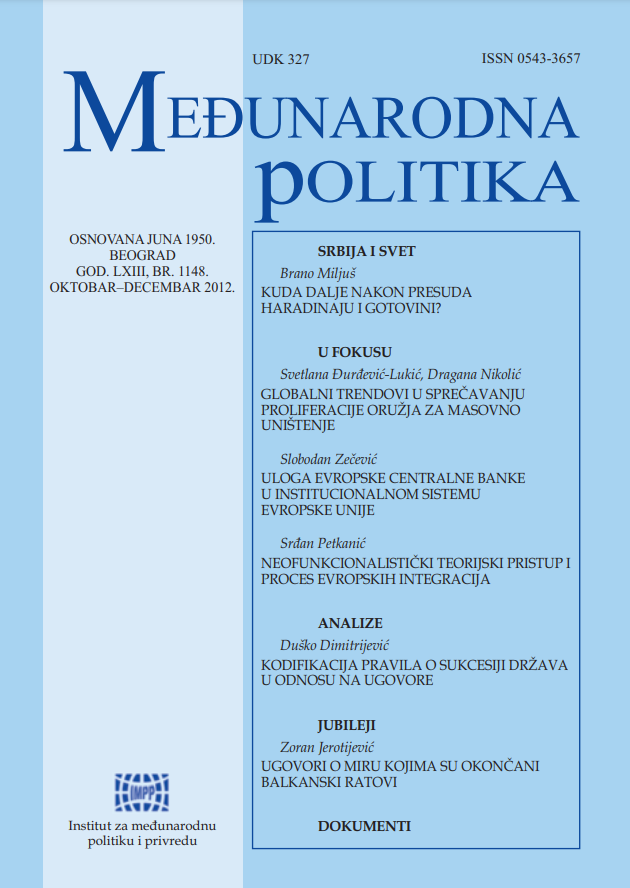
Bearing in mind the economic organisation of the federal state where the single market includes the single currency (for example, the United States of America) the creators of the Treaty on European Union, which was adopted in Maastricht in 1993, established the programme for introducing the European Monetary Union based on the common European currency called „euro“. Prior to the treaty mentioned above, the establishment of the bodies like the European Central Bank and the European System of Central Banks had been provided for with the task of managing the common currency. According to the Treaty Establishing the European Community, the bodies of the European Monetary Union were separated from other Union’s main institutions. The approach presented above was radically changed by the Lisbon Treaty that was adopted in 2009. Actually, the European Central Bank is mentioned in Chapter III of the Treaty on European Union together with its main institutions such as the European Parliament, European Council, Council, Commission, Court of Justice and the Court of Auditors. The bodies of the European Central Bank are the Executive Board, the Governing Council, and the General Council. By its nature, the European Central Bank is a supranational, independent body and its executives can neither receive nor ask for instructions from Union’s institutions, government of member countries or other organisations. The powers of the European Central Bank are very significant and are reflected, above all, in its right to issue and approve money issuing, to pursue the exchange rate policy and fix interest rates.
More...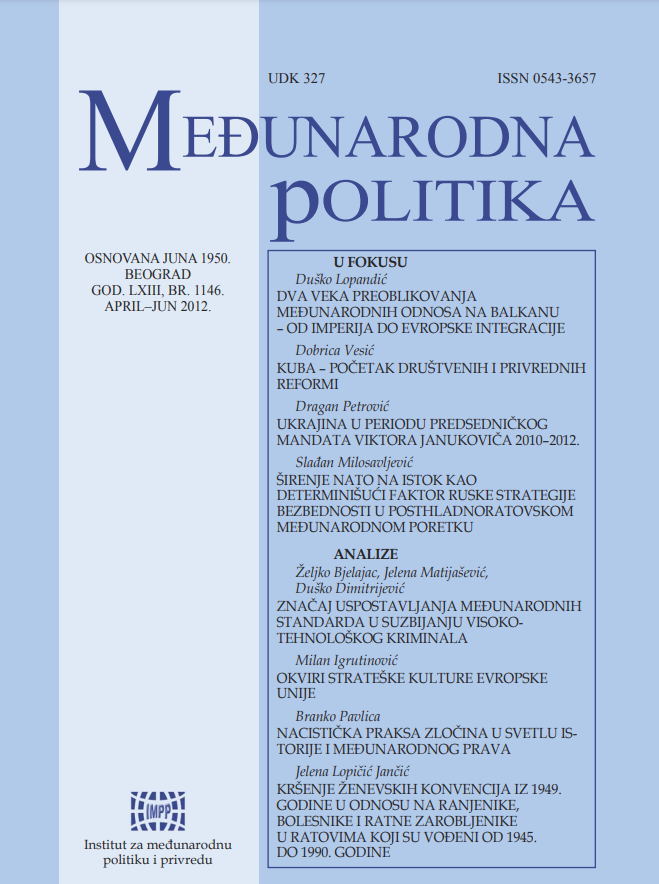
The paper analyses the position of the European Union as a special factor in international relations, which is being perceived through the prism of strategic culture. At the beginning, the author presents a short overview of strategic culture as a concept and methodological approach in the study of the behaviour of nation states as factors in the system of international relations. They should also establish the position of the European Union as a special supranational factor with its own strategic culture. The paper discusses the basic division in the relationship between the national strategic culture and the supranational EU strategic culture as well as the role of the legitimacy of the use force in that relationship. In the final part, the paper critically discusses the perspectives of the strategic culture as the dominant approach to the problem and its dependence on short-term phenomena that reduce the possibilities to establish a clear theoretical model, which has been confirmed in practice.
More...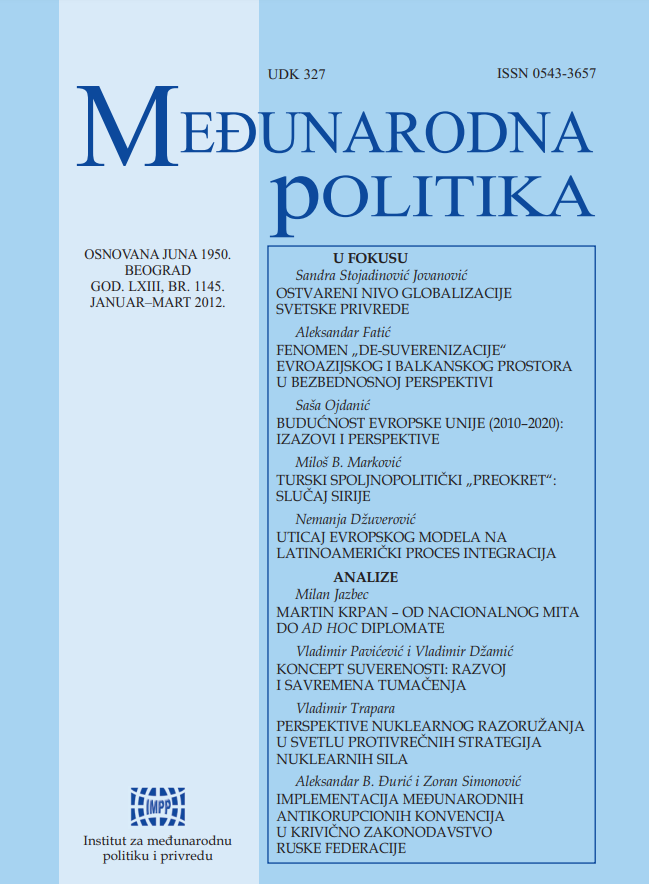
Тhe term “future” covers the period of the EU’s development in the next ten years (2010-2020). The analysis starts from the time when the Lisbon Treaty entered into force (from December 1st, 2009). More important than the symbolism of years are the complex socio-political relations, both at the international level and within the EU, together with probable consequences of the economic and financial crisis. All that could have a long-term influence on EU decisions, meaning that the EU needs to make necessary adjustments in line with the changing conditions in the world, is viewed in within the context of the realisation of the vision of its work by the year 2020.
More...